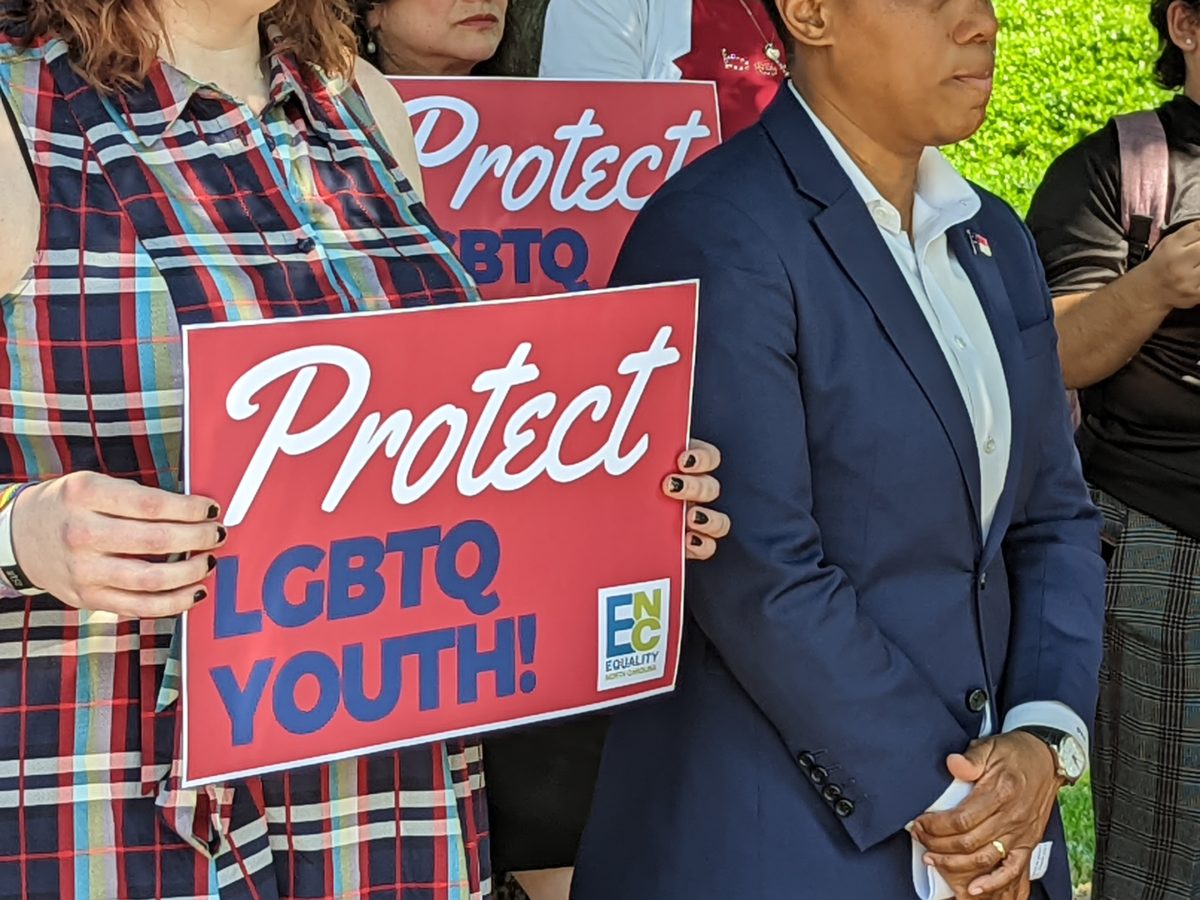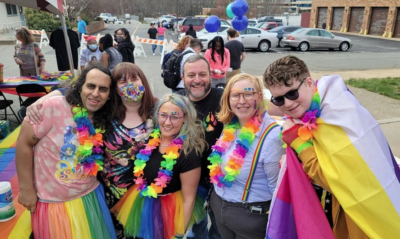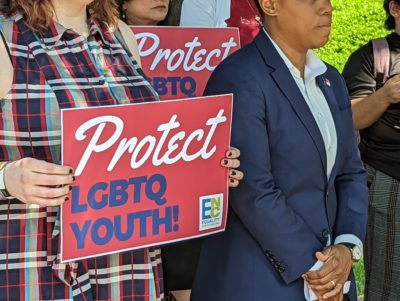

When I started teaching in 2011, I fully intended on staying in the closet. As a cisgender, bisexual woman in a heterosexual marriage, I was, in many ways, safely hidden. This is indeed a mark of passing privilege. Being safe at work is something that many folks in the LGBTQIA2+ community do not experience. To honor that, and to call school administrators to action, here is a story of one principal who made all the difference.
I had just moved to Charlotte and was continuously lost. I was anxious that school was starting in just a few days and I hadn’t met anyone on my team or even seen my classroom. In a rare and stunning act, my principal picked me up on my first day of work. As we drove, she explained how the major roads in Charlotte spread out, like an open hand. She talked about the deeply segregated schools and the powerful impact that busing had on our communities. She struck me as powerful, full of vision, and someone who keeps people on their toes. I also realized through our conversation that she was a lesbian, openly living with her long-term partner.
When I learned this, I was overwhelmed with complex feelings. I was thrilled to work with a school leader who was part of the community. I was curious about her journey and her experiences working in schools. But mostly, I felt fear. This was several years before the Supreme Court ruled in favor of marriage equality and before many of the federal, state, and local protections we now have. I wondered if she felt safe — if she was safe — at school. At that moment, I could have shared pieces of my own identity with her, but I didn’t. I still wonder about that choice and how it might have changed our relationship or impacted my effectiveness as a classroom leader. While I’ll never know for sure, I’m certain that her willingness to be authentic at work continues to inspire me and shape my own choices in navigating professional spaces as a queer educator.
Throughout my first year of teaching, I had many moments of both triumph and challenge. But what I am most grateful for is that I was able to experience my principal’s leadership. She was a force. She always kept her word. She centered families in her decision-making. She created a school environment that was inclusive for teachers and students to be who they were.
What’s the measure of success? We had teachers who were out and openly transitioning who received continuous and unwavering support from the school community and our administration. We had hard conversations. When there were moments of tension or fear, we held each other accountable for the community we wanted. Her bravery, openness, and commitment to the equitable treatment of all those in the school community was, and still is, the greatest testament to the power of representative leadership.
After over a decade of teaching and coaching teachers, I have worked with over 100 principals and school leaders. To this day, she stands out as the most inspiring and powerful school leader I have known. How did she do it? How can school administrators create spaces where LGBTQIA2+ students and teachers are seen, safe, and supported?
Here are a few tips on where to start:
- Be clear about the school culture you are working towards, and why.
What is your pie-in-the-sky vision for your school? How should people talk to each other? How should they treat each other? How will we know if our school culture is healthy, safe, and adaptive? Get clear on what it is you are after, communicate it clearly, and gain the trust and consent of all those involved. - Monitor school culture and climate closely, often, and address concerns quickly.
Culture is created, or broken, in micro-moments of interaction. School leaders should get comfortable engaging in restorative conversations with staff to ensure any community safety breaches are addressed. Don’t let it linger. - Hold all school community members to high expectations.
If the expectation is that staff members will use correct pronouns for their colleagues, hold them to it. Even if it only happens once. Even if it was unintentional. Even if you’re not sure if anyone else noticed. Stand firmly in your commitments and hold the adults in your building accountable for community agreements. - Be vulnerable and open to learning.
No one is perfect. Not me. Not you. Not the incredible school leader discussed in this piece. And do you want to know the truth? It doesn’t matter. What matters is that we ground ourselves in the humanity of others and fight continuously for justice. We must always seek knowledge and wisdom from our community. And we must be both brave and humble by allowing others to hold us accountable.
LGBTQIA2+ teachers and students are in your schools. What will you do today to ensure they are feeling seen, safe, and supported?




